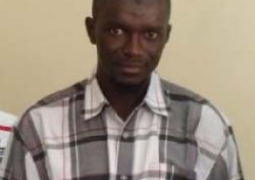The permanent secretary, Office of the Vice President and Women’s Affairs, Abdoulie Bah, has said the main purposes of the domestic bill is to combat domestic violence, provide protection for the victims of domestic violence, particularly women and children as well as to harmonize the provision of CEDAW in the national legislation.
The permanent secretary made these remarks at a one-day sensitization and capacity building forum on gender-based violence against women and girls held on Tuesday at the Paradise Suites Hotel in Kololi.
According him, The Gambia had signed and ratified the Protocol to the African Charter on Human and People’s Right on the Rights of Women in Africa in 2006 without reservation, thus making the country a party to both conventions.
“The enactment of the sexual offence bill will further strengthen the existing laws and procedures relating to the trial of rape and other sexual offences,” he said.
This legislation, he added, would therefore have an impact on our criminal laws as enshrined in the criminal code and other existing laws of The Gambia that makes provision for such offences.
He said the department of social welfare, the women bureau, the police child welfare unit and the Ministry of Justice also conducted series of initiatives to address violence in many forms such as preventive measures, services, and care and treatment of survivors, for example the shelter for survivors of gender based violence known as one-stop shop centre.
“In 2010, a national steering committee on gender-based violence was established to coordinate interventions that address gender-based violence,” said the PS.
The national plan of action on gender-based violence and FGM\C is part of the efforts for the harmonization and coordination of interventions of both the state and non-state actors in the eradication of traditional and cultural practices that affect the health and wellbeing of women and children.
He added that the development of the National Action Plan (NAPA) on FGM\C was supported under the UNICEF\UNFPA joint programme for accelerating the abandonment FGM\C in 17 countries within a generation.
“The activities of the plan of action focus on strategies to support new clinic research, working with the media, the judiciary, law enforcement agencies community leaders health professionals as well as lobbyists for the enactment and enforcement of the law against FGM\C.
Speaking earlier, Siaka Marong, Monitoring and Evaluation Officer at the Women’s Bureau, pointed out that violence against women and girls must stop, saying that concrete action to eliminate the debilitating fear and\or experience of violence must be a centerpiece of any future framework.
He posited that women and girls must have equal access to resources and opportunities to reach their full potential, saying the often skewed distribution of capabilities needs to be addressed with renewed urgency to build women’s economic and social security.
Mr Marong noted that in addition, women’s capacity to influence decision-making is intimately linked with their capabilities.
He said addressing gender equality and women’s empowerment means addressing inequalities across the board; investing in gender equality improves health outcomes, accelerates economic growth, reduces poverty and contributes to peace, and democracy.


